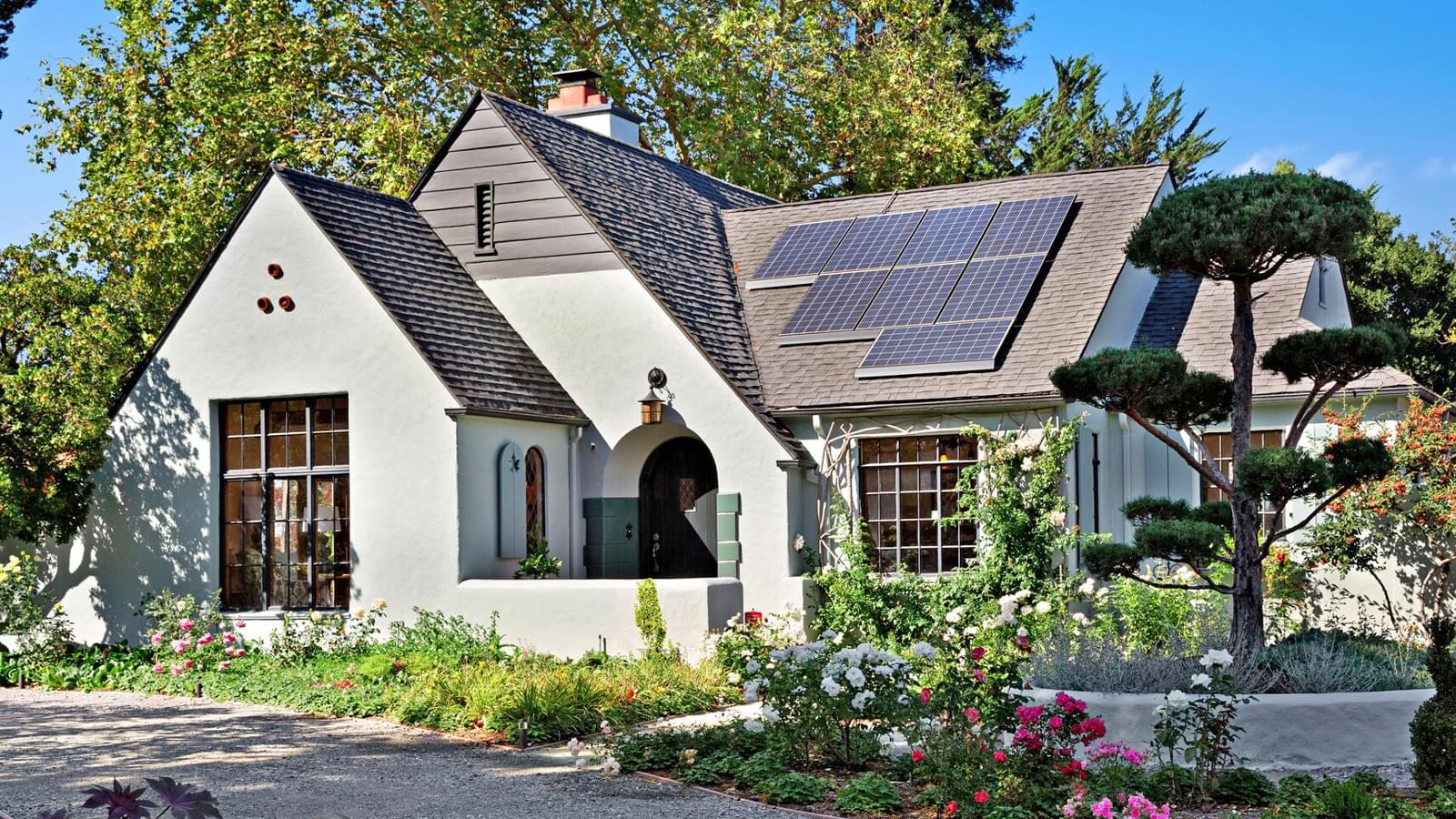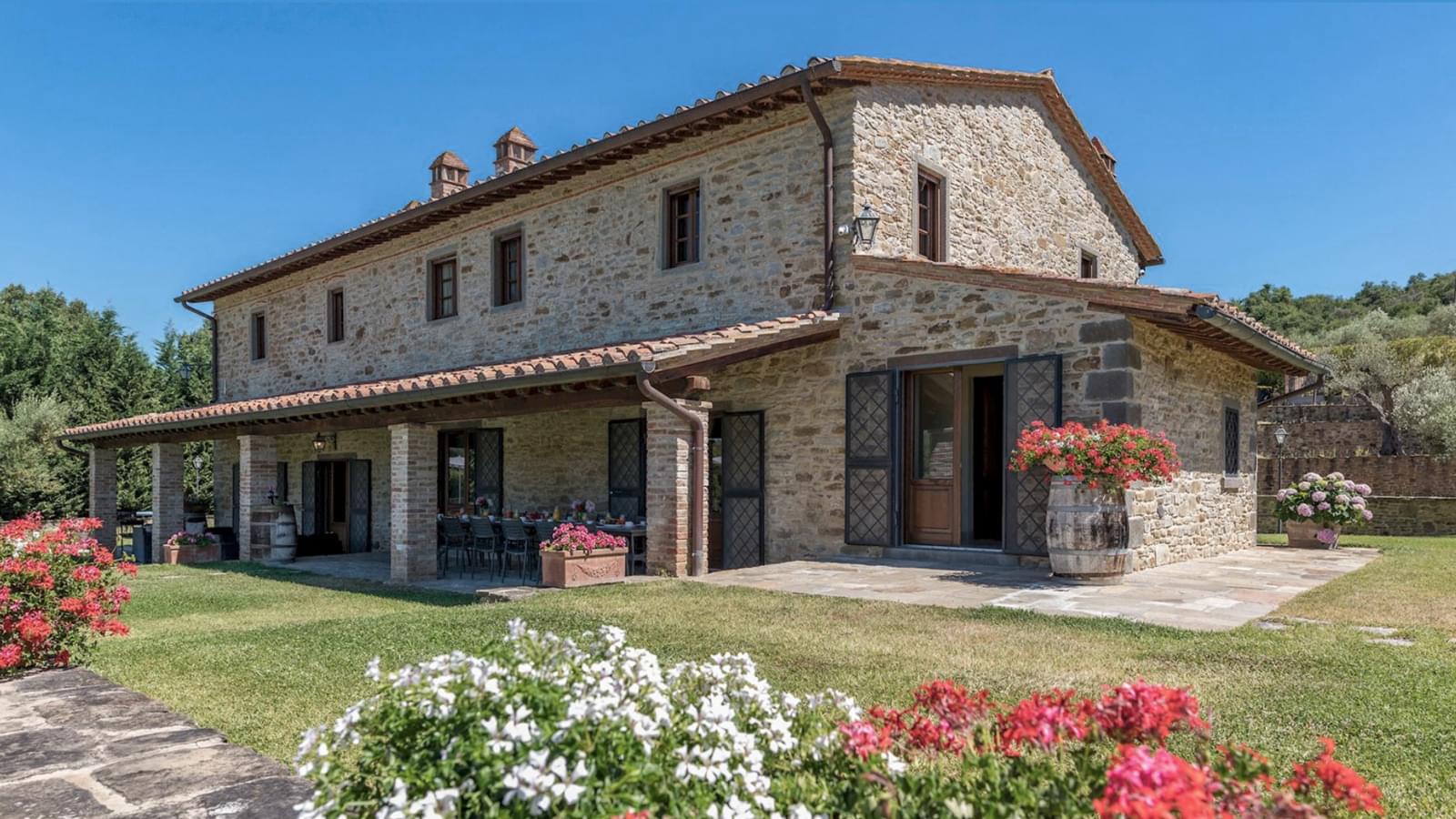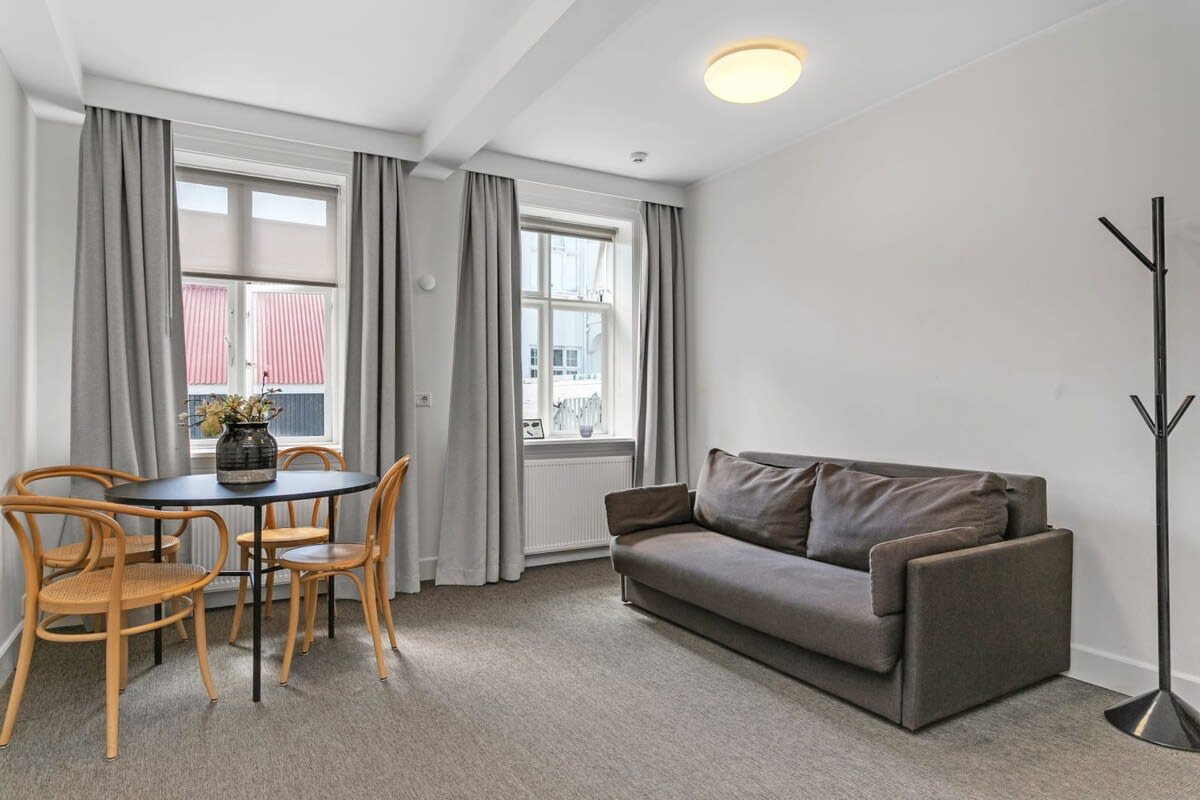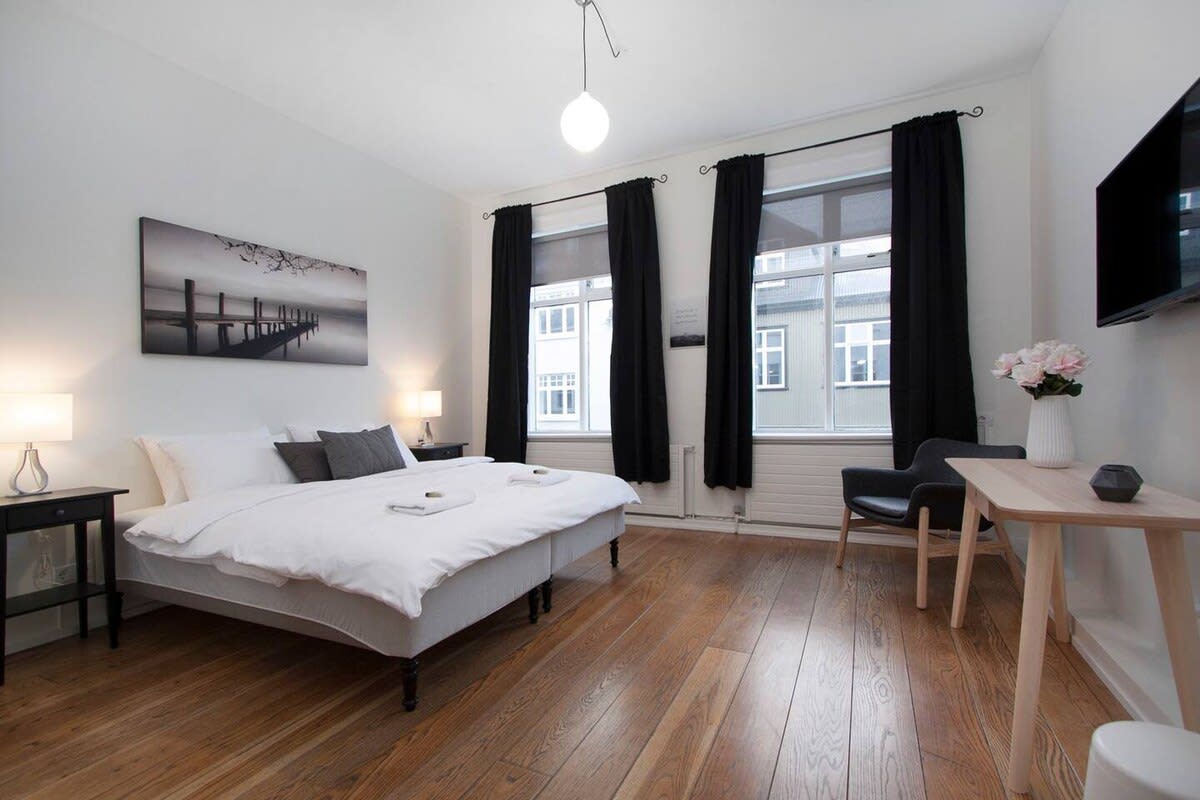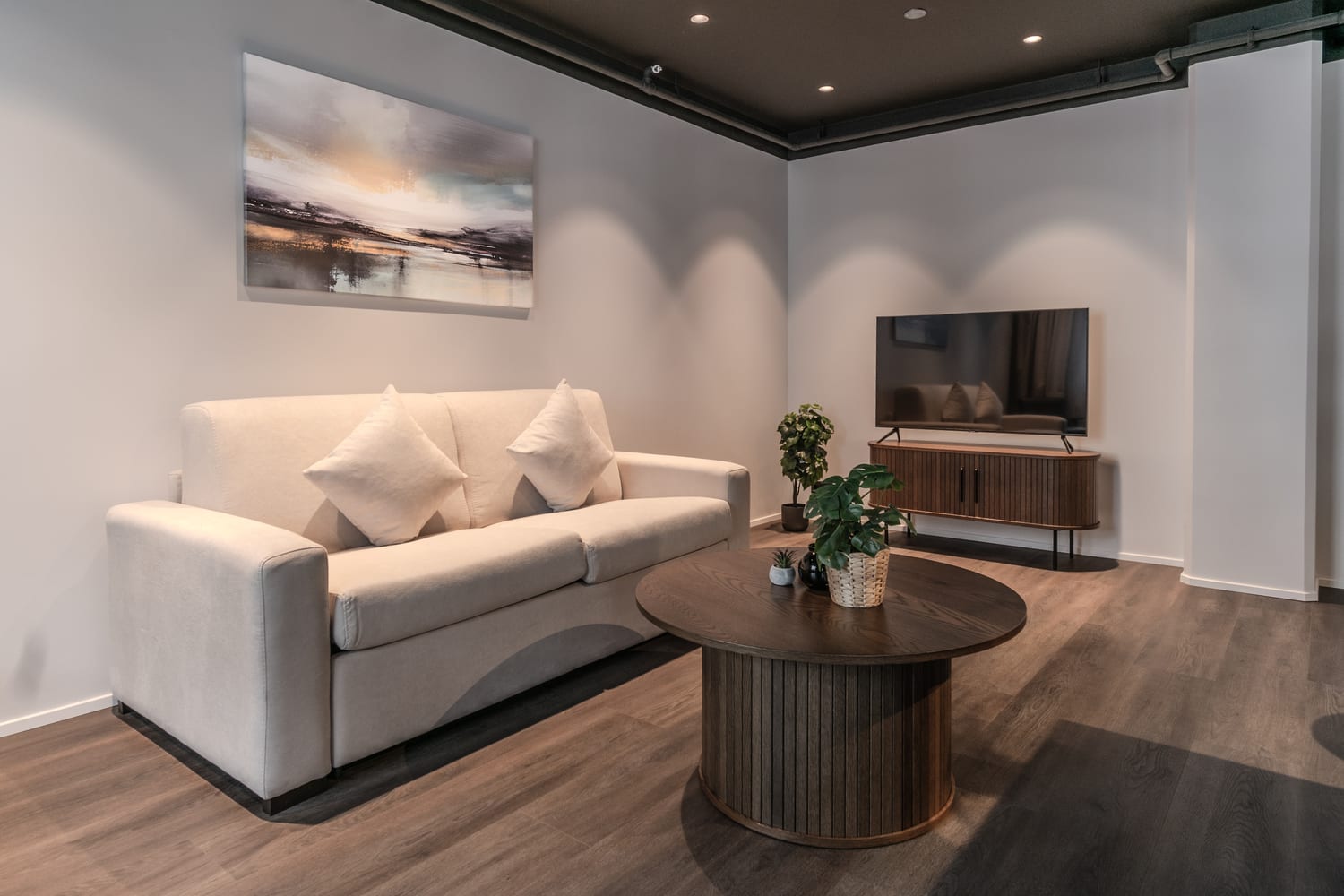Iceland Vacation Rentals
Explore 37 rental homes and villas in Iceland for your next vacation or business travel. With private vacation home rentals, enjoy a more personalized stay and a wide range of home amenities.
Types of vacation rentals in Iceland
Available properties in Iceland
Get to know Iceland
Here are some things to know to support your visit:
Iceland Overview
Iceland, a mesmerizing realm where the raw power of nature reigns supreme, invites you to immerse yourself in its enchanting landscapes of fire and ice. This is a land where geysers erupt with a primal energy, glaciers carve through the earth, and the Northern Lights perform a celestial ballet across the night sky.
Imagine unwinding in the ethereal embrace of the Blue Lagoon, a geothermal wonder cradled in a lava field, its soothing waters rich with healing minerals. Or, picture yourself traversing the iconic Golden Circle, where the thunderous Gullfoss waterfall, the spouting geysers of Geysir, and the historic rifts of Þingvellir National Park—a UNESCO World Heritage Site—await your discovery.
For an intimate connection with this rugged paradise, consider the luxury of a private home rental, a sanctuary where you can savor the serenity of Iceland's vistas with your loved ones, including your pets in many pet-friendly accommodations. While swimming pools are not commonly associated with Icelandic homes due to the naturally occurring hot springs, some rentals do offer this amenity, providing a unique way to relax after a day of exploration.
Adventure seekers will find their hearts racing with opportunities for glacier hiking, ice climbing, and snowmobiling. For those with a penchant for the extraordinary, snorkeling or diving in the Silfra fissure offers the surreal experience of floating between two continents.
Iceland's coastline is a tapestry of dramatic cliffs and black sand beaches, such as the striking Reynisfjara near Vik, where the Atlantic waves crash against the shore, and puffins adorn the skies. Embark on a whale watching journey in some of the world's richest waters to encounter these gentle giants up close.
As the darkness of winter descends, the skies come alive with the Northern Lights, best viewed from September to April. Venture into the countryside, where the absence of city lights unveils the full splendor of this natural light show.
In the heart of Iceland lies Reykjavik, a city pulsating with Nordic culture, cutting-edge art, and a spirited nightlife. Landmarks like the towering Hallgrímskirkja church and the sleek Harpa Concert Hall exemplify the city's architectural innovation.
Culinary adventurers will delight in Icelandic cuisine, a testament to tradition and sustainability, featuring hearty dishes of lamb, fresh seafood, and the velvety skyr. With a commitment to local and organic ingredients, every meal is a celebration of Iceland's bountiful lands and seas.
Iceland is not just a destination; it's an experience that transcends the ordinary, offering a symphony of nature's grandeur, cultural richness, and the warmth of a home away from home. Whether you're a nature enthusiast, an adrenaline junkie, or a cultural connoisseur, Iceland's otherworldly beauty and Nordic charm are poised to captivate your soul.
Cultural Attractions in Iceland
Iceland, a land of fire and ice, offers a unique cultural experience that blends the arts, history, and local customs in a setting of stunning natural beauty. For travelers with a passion for cultural activities, Iceland's vibrant arts scene, rich history, and distinctive traditions provide a feast for the senses.
Begin your cultural exploration in Reykjavik, the country's capital and cultural heart. The city is home to the National Museum of Iceland, where you can delve into the island's history from the Viking Age to the present day. The Reykjavik Art Museum, spread across three locations, showcases a wide range of modern and contemporary art, with a focus on Icelandic artists.
For a truly immersive experience, visit the Harpa Concert Hall and Conference Centre, an architectural marvel on the waterfront. Harpa is the home of the Iceland Symphony Orchestra and the Icelandic Opera, offering a rich program of live music performances in a setting that is as acoustically perfect as it is visually stunning.
Art enthusiasts will find a treasure trove of galleries throughout Reykjavik, such as the i8 Gallery and the Hafnarhús, which often feature the works of Icelandic and international artists. The city's street art scene is also vibrant, with murals and installations adding color to the urban landscape.
History buffs will be drawn to the Settlement Exhibition, where you can explore the remains of a Viking longhouse, or take a day trip to the Þingvellir National Park, a UNESCO World Heritage site and the location of Iceland's ancient parliament, the Alþingi.
Local customs are best experienced through Iceland's festivals and traditions. The annual Reykjavik Arts Festival brings together artists from various disciplines, while the Secret Solstice music festival celebrates the summer solstice with live performances under the midnight sun. Don't miss the chance to soak in a geothermal pool, a quintessential Icelandic custom, where you can mingle with locals and enjoy the country's geothermal bounty.
Iceland's culinary scene is a reflection of its culture, with a focus on fresh, locally sourced ingredients. Reykjavik's restaurants offer innovative dishes that fuse traditional Icelandic cuisine with modern techniques, providing a taste of the country's gastronomic heritage.
In Iceland, the arts and history are set against a backdrop of dramatic landscapes, from the thundering waterfalls and geysers to the tranquil fjords and volcanic fields. It's a destination where culture is interwoven with nature, offering an experience that is both enlightening and exhilarating.
Family friendly activities in Iceland
Iceland is a land of fire and ice, a magical destination that offers a unique and exciting experience for children. With its otherworldly landscapes, abundant wildlife, and family-friendly activities, it's a place where young adventurers can let their imaginations run wild.
Begin your Icelandic adventure with a visit to the Golden Circle, where the geysers at Geysir Geothermal Area will leave kids in awe as they watch Strokkur erupt every few minutes. Nearby, the majesty of Gullfoss waterfall is sure to impress, and Þingvellir National Park offers a chance to walk between two tectonic plates, a geography lesson they'll never forget.
For a hands-on experience with Iceland's natural wonders, take a family-friendly hike on one of Vatnajökull Glacier's smaller tongues, where children can learn about glaciers and even try a bit of ice climbing. Don't forget to visit the Jökulsárlón Glacier Lagoon, where you can take a boat tour among the icebergs and spot seals lounging on the ice.
Reykjavik, the capital city, is home to the interactive Perlan Museum, where kids can learn about Icelandic nature in a fun and engaging way, including a real indoor ice cave. The city also boasts the family-friendly Reykjavik Zoo and Family Park, where children can meet Icelandic farm animals and play in the park's playgrounds.
Whale watching tours are a must-do, with the opportunity to see these gentle giants in their natural habitat. The tours, available from various locations including Reykjavik and Husavik, are both educational and thrilling for children.
For a relaxing day, visit one of the many geothermal pools or the famous Blue Lagoon, where kids can splash in the warm, mineral-rich waters. The Blue Lagoon offers a unique silica mud mask experience that even the little ones can enjoy.
If you're visiting during the winter months, the chance to see the Northern Lights is an enchanting experience for the whole family. There are tours that cater to families, making the experience comfortable and memorable for children.
Iceland's unique blend of educational and fun activities, set against a backdrop of stunning natural beauty, makes it an ideal destination for families. Here, children can explore, learn, and be inspired by the power and beauty of nature.
Outdoor activities in Iceland
Iceland, a land of fire and ice, is an outdoor enthusiast's paradise, offering a breathtaking array of natural wonders and activities that cater to the adventurous spirit. The country's dramatic landscapes are a testament to the raw power of nature, with volcanoes, glaciers, waterfalls, and geothermal areas that are as beautiful as they are awe-inspiring.
The Golden Circle is a popular route that takes you to some of Iceland's most famous natural attractions. Here, you can witness the explosive geysers at Geysir, marvel at the majestic Gullfoss waterfall, and explore the historical and geological wonder that is Þingvellir National Park, where the North American and Eurasian tectonic plates meet.
For those seeking to immerse themselves in Iceland's glacial landscapes, a visit to Vatnajökull National Park is essential. Home to Europe's largest glacier, Vatnajökull, the park offers glacier hiking, ice caving, and the chance to see the surreal Jökulsárlón Glacier Lagoon, where icebergs float serenely on the water.
The rugged terrain of Iceland is perfect for hiking enthusiasts. Landmannalaugar, with its rhyolite mountains and hot springs, provides a colorful and otherworldly hiking experience. The Laugavegur Trail, one of Iceland's most famous treks, takes you through mountains, across rivers, and past steaming volcanic landscapes.
For a truly unique experience, snorkeling or diving in the Silfra fissure in Þingvellir National Park offers the chance to float between two continents in crystal-clear glacial water. The visibility here is unparalleled, making it one of the top dive sites in the world.
The Westfjords region, less traveled and wildly beautiful, is a haven for wildlife. Here, you can take boat tours to see puffins and other seabirds, or visit the Hornstrandir Nature Reserve for a chance to spot Arctic foxes in their natural habitat.
Iceland's geothermal activity also provides opportunities to relax in natural hot springs, such as the famous Blue Lagoon or the more secluded hot springs found throughout the countryside.
For those who visit during the winter months, the spectacle of the Northern Lights (Aurora Borealis) is an unforgettable sight. With long nights and clear skies, Iceland offers one of the best chances to witness this natural phenomenon.
Whether you're trekking across a glacier, soaking in a geothermal pool, or watching the dance of the Northern Lights, Iceland's natural wonders provide an outdoor experience unlike any other.
Weather in Iceland
Iceland, a land of stark contrasts and natural wonders, is known for its unpredictable weather, which can change rapidly. The climate is classified as subarctic near the southern coastal area and tundra inland in the highlands. Despite its northerly location, the country is warmed by the Gulf Stream, which provides a temperate climate year-round.
Winter, from November to March, is dark and cold, with temperatures ranging from -5°C to 3°C. The southern coast tends to be wetter and sees more snow, while the north is colder but drier. This is the time to experience the ethereal Northern Lights, with long nights providing a perfect backdrop.
Spring, from April to June, brings milder weather with temperatures from 0°C to 10°C. The landscape starts to thaw, and daylight hours increase dramatically, offering more time to explore Iceland's natural beauty. Precipitation is still common, but the transitioning landscape is a sight to behold.
Summer, from July to August, is the warmest and most popular time to visit. Temperatures range from 10°C to 15°C, and the country experiences nearly 24 hours of daylight, especially during June's summer solstice. This is the best time for hiking, wildlife watching, and exploring the highlands, which are generally inaccessible during other seasons.
Autumn, from September to October, sees temperatures from 3°C to 10°C. The weather becomes more unpredictable, and the first snow can fall in October. However, the autumn colors provide a beautiful display, and there's still plenty of opportunity for sightseeing.
The most pleasant climate is typically found in the summer months, when the weather is milder and the days are longest. However, each season offers its own unique experiences, from winter's Northern Lights to summer's midnight sun. Travelers should always be prepared for all types of weather, as conditions can change quickly, and pack accordingly. Layering is key, as well as waterproof and windproof clothing, to fully enjoy the Icelandic outdoors no matter the season.
Transportation in Iceland
Iceland, a land of fire and ice, offers a variety of transportation options for travelers seeking to explore its dramatic landscapes and vibrant culture. The primary gateway to Iceland is through Keflavík International Airport, located about 50 kilometers southwest of the capital, Reykjavik. Upon arrival, visitors can take the Flybus or Airport Express shuttles, which provide regular service to Reykjavik and other major towns.
For those who prefer a more direct route, taxis and rental cars are available at the airport. Renting a car is a popular choice for travelers who wish to explore Iceland at their own pace, especially given the country's well-maintained Ring Road that encircles the island, providing access to many of its natural wonders.
Within Reykjavik, the city's public bus system, Strætó, offers a convenient way to navigate the capital and its suburbs. Taxis and ride-sharing services are also available, though they can be more expensive. Reykjavik is quite walkable, with most of the main attractions, restaurants, and shops located within the city center. Walking is a great way to experience the city's charm and vibrant street life.
For those looking to venture beyond the capital, domestic flights connect Reykjavik with other regions of Iceland, making it easier to reach remote areas quickly. Ferries also provide transport to various islands and coastal towns, offering a scenic way to travel.
Iceland's rugged terrain and natural attractions, such as geysers, waterfalls, glaciers, and volcanic landscapes, are often located in areas that are not accessible by public transportation. Therefore, joining guided tours or renting a vehicle is recommended for those wishing to fully experience Iceland's natural beauty. During the winter months, it's important to have a 4x4 vehicle and to be prepared for challenging driving conditions.
For the adventurous, cycling can be an exhilarating way to see the country, though it's best suited for experienced cyclists due to the variable weather and terrain. Hiking is also a popular activity, with well-marked trails available for all skill levels.
In summary, Iceland offers a range of transportation options to suit different travel styles and preferences. Whether you're exploring the compact and walkable city of Reykjavik, driving the scenic Ring Road, or taking to the skies for a domestic flight, you'll find that getting around Iceland is an integral part of the adventure.

